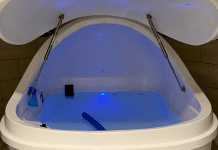Who does the talking when you take your child to see the doctor? You, your child or both?
Hopefully, your child does more of the talking. Children who are verbal enough to speak should be encouraged to respond when a doctor asks questions about their symptoms. Not only does this help assess how they actually feel, it greatly helps with accurate diagnosis and management. It also boosts their confidence.
I recently asked a 9-year-old the last time she had a bowel movement. The parent in the room, who had done most of the talking during the visit stated, “she had a bowel movement prior to arrival to the ED”. On the other hand, the child stated she had been trying to have a bowel movement for 2 days without success. She was constipated and having abdominal pain due to these reasons. At that age, poop sounds more private to them and unless you ask some specifics, they may not share that with you. Being in the bathroom doesn’t mean a bowel movement happens and sometimes direct answers from your child helps us differentiate that.
Your child should be taught and empowered to have a voice during their doctor’s visits. This not only provides benefits to medical care but has other benefits to your child:
Helps build their confidence
Some children are naturally assertive and can speak up for themselves even before their parents respond, while others need to be taught how to be assertive and confident. When children learn how to express themselves with confidence their self-esteem increases.
A parent never really knows how confident a child is in school because they are not there. There are only a few scenarios where you can watch and listen to your child respond to questions and a doctor’s visit is one of them. These scenarios give your child an opportunity to use their ‘voice’ in a controlled environment and also helps you to nurture and empower them. This can go a long way to help them manage situations to an extent when you aren’t there
Helps them know they are involved in taking care of their body
Children should be taught early enough how the normal body functions- what is considered normal and what shouldn’t. If children are directly involved in the visit conversation and able to explain their symptoms, they are more likely to know what is normal and when things change. They are also likely to know when to inform a parent early enough if things turn for the worse.
Allays the anxiety related to medical personnel
Children will always be anxious and scared of new people around them. This escalates more when these are medical personnel who create uncertainty about the possibility of painful procedures. Letting your child speak up with the providers may help allay this anxiety over time. This also becomes much easier as your child gets older.
 Prepares them for recommended private conversations as a teenager
Prepares them for recommended private conversations as a teenager
The American Academy of Pediatrics recommends teenagers should speak to the doctors alone at some point during their visit. Children who have become comfortable with speaking up during previous visits while you as a parent were in the room are more likely to share their health and social concerns without you present. This not only empowers them but emphasizes they are responsible for their bodies and teaches them to care for it.
As a doctor and mom, I have learned not to hijack my children’s doctor’s visit. I encourage them to speak up. Even though my 3-year-old doesn’t know the right responses to all her questions, I make sure she sits in front of me and the questions are directed to her first. I do most of the answering at that age but makes her feel important and in control.
Here’s how to help your children get involved and respond to their own questions during a doctor’s visit:
- As a parent, you have to first understand why this is important for their health. Believing the benefits will help you know how to empower your child.
- Start by asking them how they feel about talking to the doctor. Clear out any reservations they have and let them know that they know their body better than you do and they are probably going to be the best to tell us.
- Before each visit, ask them clearly about their symptoms and answer any questions they may have. Let them know they will be answering all the questions themselves and you can help out if needed.
- During a visit, look at them for support and encourage them to answer. Don’t take their delay in response or their shyness for a prompt to help them out. Doing this doesn’t give them a chance.
- Don’t hush or discredit your child when they respond, even if you think what they said is wrong. It’s best to correct them in an encouraging way such as “you remember telling me it didn’t hurt last night”. Saying things like “that’s a lie or he is just exaggerating” may hurt their feelings and discourage them from trying next time.
- I understand how pressing parents might feel to interject with their own histories and experiences too but focus on the child. Feel free to add relevant family history when you are asked. Comparing your child’s symptoms and pain to yours may not only confuse diagnosis but may make them feel less important in the discussion.
Helping your child get the best out of their doctor’s visit either with their pediatrician or in an emergency room, starts with encouraging them to speak up.
Giving your child a chance to express themselves goes a long way to improve their confidence and nurtures independence.
About Nkeiruka Orajiaka
 Dr. Nkeiruka Orajiaka is a board certified pediatrician with a Masters in Public Health from Columbia University, New York. She currently practices as an Emergency Room Pediatrician in a busy ER in Columbus Ohio. She is a passionate health educator and a strong advocate for children’s health and well-being. She is a wife and a mother to 2 tweens and a toddler. After living in the bustling city life of Manhattan, New York for 5 years, they are currently enjoying the suburbia life in New Albany, Ohio. She shares her passion for medicine, motherhood and motivation on her blog –drnkeiru.com and on her Instagram page: @dr_norajiaka
Dr. Nkeiruka Orajiaka is a board certified pediatrician with a Masters in Public Health from Columbia University, New York. She currently practices as an Emergency Room Pediatrician in a busy ER in Columbus Ohio. She is a passionate health educator and a strong advocate for children’s health and well-being. She is a wife and a mother to 2 tweens and a toddler. After living in the bustling city life of Manhattan, New York for 5 years, they are currently enjoying the suburbia life in New Albany, Ohio. She shares her passion for medicine, motherhood and motivation on her blog –drnkeiru.com and on her Instagram page: @dr_norajiaka
















